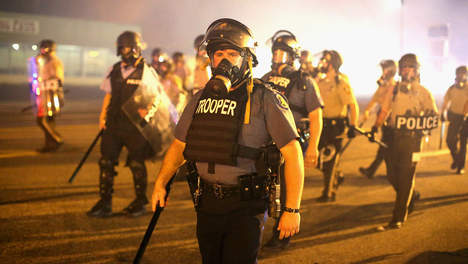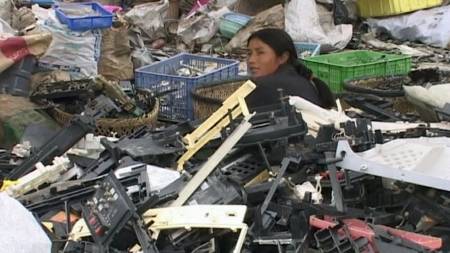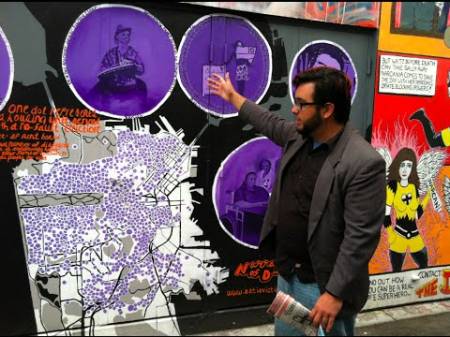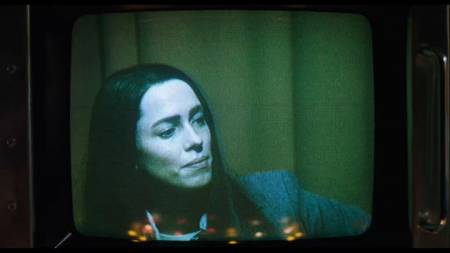-
MILL VALLEY FILM FESTIVAL Oct. 6-16, 2016

The Festival, in Marin County, in Mill Valley and San Rafael, in Northern California, in the greater San Francisco Bay Area is presented by the California Film Institute. It started in 1977.
The 39th Mill Valley Film Festival will take place October 6–16, 2016.
General Film Forum for MVFF 2016
Links to reviews:
Aquarius (Kleber Mendonça Filho 2016)
After the Storm//Umi yori mo mada fukaku (Hirokazu Koreeda 2016)
Solo/Assolo (Laura Morante 2016)
Bleed for This (Ben Younger 2016)
Certain Women (Kelly Reichardt)
Christine (Antonio Campos 2016)
Company Town (Deborah Kaufman, Alan Snitow 2016)
Confessions, The/Le confessioni (Roberto Andò 2016)
Death By Design (Sue Williams 2016)
Do Not Resist (Craig Atkinson 2016)
Egon Schiele—Death and the Maiden/Egon Schiele: Tod und Mädchen(Dieter Berner 2016)
In Dubious Battle (James Franco 2016)
Jeremiah Tower: The Last Magnificent (Lydia Tenaglia 2016)
Keeper (Guillaume Senez 2016)
Land Legs/Tempête (Samuel Collardey 2015)
Long Night of Francisco Sanctis (Andrea Testa, Francisco Márquez 2016)
Neruda (Pablo Larraín 2016)
Nine, The (Katy Grannan 2016)
Occupy, Texas (Jeff Barry 2016)
Paterson (Jim Jarmusch 2016)
Salesman, The/فروشنده [Forushande] (Asghar Farhadi 2016)
What's in the Darkness/Hei Chu You Shen Me (Wang Yichun 2016)

Last edited by Chris Knipp; 02-01-2018 at 06:19 PM.
-
DO NOT RESIST (Craig Atkinson 2016)
CRAIG ATKINSON: DO NOT RESIST (2016)

POLICE IN FERGUSON, MISSOURI FROM DO NOT RESIST
A disturbing documentary about "The crisis of police militarization"
Today's American war machine produces "war surplus" like never before. And the government is giving it to local police departments. This means the growing militarization of police: they're increasingly over-supplied and over-armed. And because equipment on hand is likely to be used, that's dangerous, especially since they are often not taught how to use it. This is what we seem to be seeing in the way the police invaded neighborhoods like an infantry division in Afghanistan after the Boston Marathon bombing in 2013, and the way overwhelming force, troops, weapons, and tear gas, was brought out against protesters in Ferguson, Missouri in 2014 after the killing of unarmed teenager Mike Brown by police officer Darren Wilson. Sometimes the phenomenon seems just ludicrous, as we see here when the city council of Concord, New Hampshire votes, against citizens' voiced protests, to accept the gift of a $250,000 "Bearcat" attack vehicle - for a place that has a total of two homicides since 2004. But it's not funny when Atkinson shows us a giant military vehicle rumbling through the little New England town, and such an event is not a fluke but increasingly the way things are. It seems Atkinson doesn't want to propose a solution, just mainly to scare us. But he does a very good job of that. And being the co-cinematographer of the visually elegant Detropia, Atkinson fills his film with intense moments and striking, rough-but-handsome images.
Fact: Homeland Security has given US police deparments $34 billion in grants to buy military-style equipment. The Department of Defense gave $5 billion in free equipment to them. Atkinson's film shows that "SWAT" (Special Weapons and Tactics) teams are equipped much like military assault forces now, and the use of them, with their greater numbers and outsize military vehicles, is increasing. They are hired in to "sweep" a "scene" where illegal drugs are suspected to be dealt or stored. The filmmakers chronicle such a SWAT team "drug bust" in South Carolina, routine there, apparently, where the "catch" turns out to be a young black man with dreads and a day pack with a few loose buds of marijuana. He is released that night, but probably over a thousand dollars worth of damage has been done to a window of the family's house, and they have terrorized.
According to an informative May 13, 2016 article about this film and its subject by Dexter Fillkins for The New Yorker online, entitled "Do Not Resist and the Crisis of Police Militarization," Atkinson's personal starting point was the legally dubious Boston police response to the Tsarnaev brothers' Boston Marathon attack, which overrode civil liberties in homes and neighborhoods and treated them, as mentioned, very much like an enemy combat zone. But in this film, it is the police riots against the demonstrators in Ferguson in 2014 that are constantly referenced throughout, and he shows Senate hearings that resulted, showing that those events awakened government officials to how "law enforcement" was overriding civil liberties on a massive scale. The government somehow gave out 12,000 bayonets to local police departments, someone points out. What for? The Homeland Security rep has no answer.
The most unnerving person in the film is Col. Dave Grossman, a popular motivational speaker for military and police audiences. Grossman, for one thing, blurs the line between military and police. He believes those uncomfortable with the heavy arming of local police should be lined up and shot. He tells cops their job is to do violence, and he encourages him by saying that after a day of heavy assaults they'll have their best sex in months.
The windup is a focus on independent security firms. They use drones to surveil an entire community. Current equipment - and a woman police officer in her vehicle demonstrates it - can identify any car on the road, and if it can get a fix on people's faces, it can use face-recognition technology to identify them and look up their records, and this is legal, because they're in public. Other "experts" can use computerized statistical analysis to tell people if their yet unborn child is, or is not, likely to be charged with murder by the age of eighteen. And if drones that attack do so more surely running by themselves than when being piloted remotely by a human, isn't it better to let the computer do the job?
This reminded me of a quote from the great John Le Carré's latest novel, A Delicate Truth - about a related topic, the commercialization of warfare. It's spoken by Jay Crispen, the despicable head of an independent contractor "security firm" called Ethical Outcomes. The burden of the book is a failed British government operation involving Ethical Outcomes that wasted a few millions with no result other than the killing of two innocent civilians. Crispen scoffs at this concern over the two deaths. "Give me a Predator drone and a couple of Hellfire missiles," he says, "and I’ll show you what real collateral damage looks like."
Thanks to cooperation between the FBI, Homeland Security, and your local police force, Predator drones and Hellfire missiles are coming your way. The message of Craig Atkinson's unnerving film is that things are only going to get worse.
Do Not Resist won the Best Documentary prize at the Tribeca Film Festival this year, and its important warning of the dangerous growth of police militarization parallels that of another new documentary, Ava Ava DuVernay's The 13th, this year's opening night film for the New York Film Festival, which treats the mass prison warehousing of young African Americans as an extension of slavery. Both of these phenomena can be seen as terrible inroads on civil liberties. Or they can be seen as merely aspects of economics, whose "supply-side" version argues that economic growth is best fostered by investing in capital and lowering barriers on production of goods and services. Militarizing local cops and growing prisons invests in capital and moves goods and services. It makes somebody a lot of money, chiefly government suppliers and independent contractors. It also costs taxpayers a lot. The degree to which war is pure business for some became clear, if it wasn't before, during Bush's invasion of Iraq. Collateral reading might be Naomi Klein's book The Shock Doctrine: The Rise of Disaster Capitalism. Atkinson's film focuses on the militarization of American police. Unfortunately, American documentaries sometimes forget to see beyond the USA. But this phenomenon of police militarization is happening in many other places, as in fact is the use of American independent war contractors described realistically in Le Carré's novel.
Do Not Resist, 72 mins., debuted at Tribeca 14 April 2016, winning the Jury Best Documentary Feature award, and showed at a handful of other documentary festivals (Mill Valley Film Festival Oct. 9 & 12, 2016). Opening 14 Oct. in Los Angeles and Pasadena, national rollout following; 21 Oct. at Roxie Cinema in San Francisco. US limited theatrical release begins at Film Forum, NYC 30 Sept. 2016.
-
DEATH BY DESIGN (Sue Williams 2016)
SUE WILLIAMS: DEATH BY DESIGN (2016)

The terrible toll that tech takes
This is a film about the dark side of tech and are you surprised that Apple is the biggest villain? A mostly talking heads documentary can still be very valuable, and Sue Williams' film is living proof. So while the film has plenty of atmospheric and revealing film footage of customers, workers, and (damaged or damaging) environments, what counts most in Williams' film are the people who address the camera. Death by Design is a simple no-nonsense film, but neatly edited with elegant graphics. It's essentially an instructional film about a subject that it's urgent to know about.
Ma Jun, a remarkable man who founded - and is - the Institute of Public Environmental Affairs of China, explains that more than 60% of China's groundwater is not suitable for human use. Ted Smith, another pioneer, a Stanford lawyer and environmental activist who founded Silicon Valley Toxics Coalition, reports on the toxic chemicals stored in Silicon Valley that have entered the ground and says the EPA Superfund program requiring environmental cleanup of factory damage is more intensive in Silicon Valley than anywhere else in the country. All the big tech company Silicon Valley locations are Superfund sites, he says, and cleanup will take not decades but centuries. This will come as news to most of us even who live in or near Silicon Valley.
More about this comes from Amanda Hawes, a lawyer on a team that brought a class action against IBM in the Nineties for workers with health problems from chemicals used in company production. We meet a woman who cares for her son born with severe developmental disability due to her exposure to chemicals 30 years ago. (Mark, the son, is not a "talking head." It's his body and his helplessness that speak.)
Since 1999, the consumer electronic gadgets have snowballed, with severe consequences. Scott Nove, Worker Rights Consortium, explains how outsourcing enables companies like Apple to bypass human safety rules and allow young poor workers from the country to be pushed to the point of suicide in China so 100 million iPods can be sold or a million iPhones can be delivered in a week.
In country, we meet Li Quiang of China Labor Watch: workers' pay is so low it accounts for only 1% of iPhones' cost. The film shows young Chinese assembly line electronics workers, and a few speak to the camera about the pressures to produce and work long hours. Foxconn is the big Chinese Apple supplier, we learn, biggest private employer in the country, over a million workers. Twelve hour days, 30 days without a day off: that's the kind of slave labor that produces the iPhones, iPads, etc., that Americans are so addicted to. Workers died in an explosion from iPad backing in a Foxconn factory.
Garrett Brown, an occupational health and safety expert, comments on this. So does Scott Nove. They both say Apple knows exactly what it is doing and Foxconn's abuses and foul-ups are unconscionable.
Next comes disposability of product. Apple products are designed not to last. New iPhones and laptops have batteries you can't swap out, so you have to replace the entire product in a year or two (if you want it to work on battery charges) and make the company richer. There are opponents, like iFixit - Luke Soules is a young co-founder - which helps people fix the products instead of replacing them. Obviously this is one of the big parts of the problem: too many products, and the number of products could be curtailed. But the tech industry is secretive, exploitive, wants to own the product even after you buy it. Not possible in other industries: a car manufacturer can't prevent car owners from replacing their tires. Luke goes to China and director Williams follows him there. Alex Li is his local translator, who helps him visit multiple circuit board manufacturers in Shenzhen before he finds one with environmentally responsible practices that he can buy from.
It's pleasing after what we've learned by now to see Ma Jun win a Skoll Award for socially responsible entrepreneurship. Back in China, he says it's cheaper for the tech factories to pay fines than to comply with environmental standards in the country because the fines are too light. Apple is the worst offender, arrogantly refusing to reveal its supply chain. Linda Greer, an environmental toxicologist with the National Resources Defense Council, worked with Ma Jun to put the pressure on Apple.
Williams turns away from China in the last quarter of her documentary to tech-caused environmental cancer in the US, and developments elsewhere. In Endicott, New York, near an IBM factory, people are ill from chemicals leaked into the ground all along one street a generation later. We hear from the Sherlings. Their son died. Last year a class action, a decade of lawsuits, led to an IBM payoff of under $20,000 per plaintiff. She finds small European companies like MicroPro and iAMECO in Dublin, Ireland, building fair trade, repairable, updatable computers built without dangerous materials. Anne Galligan is the cofounder; their laptops are in wooden cases. They're beautiful.
Darrin McGee, an environmental geographer addresses the growing issue of after-sale waste, thrown-away electronic -- Dan Cass is a tech device recycler -- and much of the electronic waste winds up back in China near where the devices were made, Guiyu, where pediatrician Xia Huo found the children have high levels of lead. Kimberly Prather, Atmospheric Chemistry, UCSD, says "a metal's a metal's a metal" whether in soil, water, or air -- "you still have a metal," and China's pollution comes back to us. It travels the globe.
The message is we must all be more aware and more responsible. And consider looking for green devices next time and not replace them so often. To find out what you can do visit deathbydesignfilm.com/
Death by Design, 73 mins., debuted at Seattle (see John DeFore Hollywood Reporter review) 21 May 2016, three other festivals including Mill Valley (7 & 11 Oct.), as part of which it was screened for this reveiw.
-
COMPANY TOWN (Deborah Kaufman, Alan Snitow 2016)
DEMORAH KAUFMAN, ALAN SNITOW: COMPANY TOWN (2016)

[size1]JOE RODRIGUEZ, MURAL SHOWING SAN FRANCISCO EVICTIONS IN COMPANY TOWN[/size]
A politician's campaign around the tech invasion of San Francisco
It begins with these three statements on screen: "San Francisco is the new global capital of high tech and home of 'sharing economy' companies like Airbnb, Uber, and Lyft. . .The tech boom has displaced ethnic communities and driven the middle class out of the once free-spirited city. . .A grassroots backlash against the tech invasion could swing an upcoming election, sending a powerful message." This defines this documentary's focus and its bias. It concentrates on two politicians waging opposing campaigns concerned -- or not -- with the tech invasion. They are former Board of Supervisors president Aaron Peskin and current appointed supervisor Julie Christensen, campaigning for supervisor of District Three of the city. We know which side this film is on - and it converted me. (Well, I probably didn't need converting.) And as a matter of fact, as we learn, the public went along too. Peskin, the grassroots, anti-corporate hero of Company Town, indeed wound up beating tech development friend Ms. Christensen in the election.
Joe Fitzgerald Rodriguez is a San Francisco Examiner correspondent covering the fight for political control in the Mission district, Ground Zero for the conflict of local natives vs. tech billionaires wishing to buy political power in the city. Young Rodriguez, a local native and the film's main non-political talking head, laughs as he points out the dramatic recent gentrification of Valencia Street a minute away from the slummy colorfulness of Mission streets, but he doesn't exactly laugh at the map showing hundreds of evictions in the city, one of which was of his grandfather. The fact his granddad had to die of cancer shortly after being forced to move to a place not his own makes him angry and sad.
The Mission District has tech invasion Ground Zero status because it's being rapidly invaded. But the key segment of the city is District Three, which Peskin and Christensen are contending for. This is a small district comprising the city's most iconic places. They include the elegant heart of the downtown, Union Square; the Financial District and the eastern waterfront, Fisherman's Wharf; Polk Gulch (where I lived for 16 years); the iconic hills, Telegraph, Russian, and Nob Hill; and the tourist magnets Chinatown and North Beach. All in all, that is the city, traditionally.
Julie Christensen, the District Three incumbent, says she doesn't even mention the word "tech" in her campaign. She is strongly supported by the laissez-faire present San Francisco city mayor who appointed her, Ed Lee, who wants to let development go as it has been and encourage more of it. Peskin wants to protect traditional properties and traditional populations of the city, and is supported by labor, taxi drivers, artists, and moderate income residents and the other grass roots groups who are now endangered species.
We see that Christensen spends time in every speech attacking Peskin, her opponent, tarring him with the "bad boy" brush, making him out to be a loud, macho tough guy and a spoiler who misrepresents her. She gets a kick out of herself; she laughs warmly at her own jokes. The film doesn't want us to like her, and we don't. Her slogan is "Julie Christensen gets things done," and she would obviously represent Peskin as an obstructionist wanting to stand in the way of progress and economic development beneficial tot all -- or all who remain after the evictions, at least. (Her heart bleeds for the evicted, she tells Joe Rodriguez, it really does. . . We must find land and space for them, somewhere. . . )
Airbnb in San Francisco, it turns out, has become a cover for low-overhead hotels, multiple units taken over to use exclusively for day-rentals, pushing out moderate income residents. Peskin points this out; Christensen and tech billionaires deny it, claiming Airbnb is just a way of helping strapped locals survive in the more expensive economic environment. Peskin points out that "the sharing economy" is nonsense. Sharing, he argues, is not something you pay for. Uber drivers are not "sharing" their cars. They are using them as taxis at their own expense and getting paid below minimum wage to do so. Each "sharing" branch is a mass of peons with a few mega-rich at the top of it.
Chinatown is an endangered site. Jeffrey Kwong, who grew up in ultra-crowded Chinatown conditions, is a young Peskin campaign volunteer (Peskin says he's known Kwong since he was 13), who acts as his interpreter to venerable members of Chinatown family societies. Kwong explains, and shows, conducting his own interview with a young Chinese tenement dweller, how the tech invasion is driving out poor Chinese immigrants - no place for them to stay anymore. Kwong must have been an ace campaigning tool for Peskin in Chinatown and illustrates Peskin's political savvy.
(Though not mentioned here, the Castro, the longtime gay district adjoining the Mission, has also seen an invasion of tech wealth.) This film shows crowds of ill-dressed Silicon Valley employees disappearing into ominous, sleek, white double-decker buses with black windows that whisk them away to work and whisk them back to their San Francisco residences so they have no interaction with the city.
The film shows Christensen casting the crucial vote for a proposition protecting Airbnb's corporation and big renters from regulation or restriction in San Francisco. Uber and Lyft are obviously ways of exploiting workers according to a "business model" far more profitable at the top than traditional taxi companies, whose employees they now greatly outnumber. They mounted a multimillion dollar campaign in the city to protect their interests. Evidently they didn't work as hard to help Christensen - whose last minute vote-getting efforts this film doesn't cover, only Peskin's -- because Peskin won -- a victory for the little guy, or so it would seem.
Kaufman and Snitow have made a clear and engaging little documentary, which avoids muddle by not questioning Peskin's points. Clearly the global "sharing economy" industry is worth a wider-ranging film - which might take in changes in other cities with different dynamics, such as the gentrification of Manhattan (and other boroughs of New York City) and the "Disney-fication" of Times Square; corporate rebuilding of large tracts of London, and so on.
Company Town, 75 mins., has its world premiere at the Mill Valley 9 & 15 Oct. 2016. It was screened as part of coverage of this festival.
-
KEEPER (Guillaume Senez 2015)
GUILLAUME SENEZ: KEEPER (2015)

KACEY MOTTET KLEIN, GALATEA BELUGI IN KEEPER
Unexpected
Teen pregnancy is an all too familiar topic, but the Belgian director Guillaume Senez, shines in this first feature as director, giving it a fresh and sensitive treatment. Maxime (Kacey Mottet Klein) and Mélanie (Galatéa Bellugi) are a young couple, both fifteen (and the engaging actors are this very age). Max and Mélanie are a sweet and loving, if unready couple.
Surely they're in over their heads when they discover she's pregnant, and he's the father. Nonetheless, in love, they decide they want to keep the baby. The title's a bit of word play, because Max is also an aspiring soccer goalkeeper; his dad's a coach. Participating in a sports camp with the baby on his mind is more than he can really handle. They are under the shadow of their parents. While Max's mother (Catherine Salée) is exceptionally understanding and supportive of whatever the kids will decide to do, Mélanie's (Laetitia Dosch), who herself suffered the woes of being a teenage mom, is adamant in insisting on an abortion or, failing that, that Mélanie not keep the baby.
What defines this film as a superior effort is hard to put a finger on, but Keeper's rewards clearly lie in the delicate texture of individual scenes, particularly those between the gifted young Klein and Bellugi, who's equally fine. Much of their dialogue is improvised, creating a valid sense that Max and Mélanie, wading into deep waters, aren't quite sure where they're going. The beauty of the film is that despite some losses of cool by Max and a hard line from Mélanie's mother that makes Dosch sound a bit shrill, the tone is very quiet, and this in itself helps avoid cliché.
The young cople's decision leads viewers into uncharted territory too. The ending leads us into Dardennes landscape, but without the uplift, but no miserablism either. With a final shot that can make you cry, evoking the Dardennes' L'Enfant.
It's been fun to follow the Lausanne, Switzerland native Kacey Mottet Klein ever since he was discovered by Ursula Meier (also Swiss French) for her film Home, with Isabellle Huppert and (Dardenne regular) Olivier Gourmet. I guess he was nine, and a year or so later Meier created her film Sister )L'enfant d'en haut basically as a showcase for his mercurial talents with Léa Seydoux costarring, playing penniless and abandoned siblings living by their wits on the edge of posh Swiss ski resorts. In between came Klein's priceless turn as precocious preteen squirt Serge Gainsbourg in Joann Sfar's kaleidoscopic biopic. Klein has since grown from nutty, hyper prepubescent to intense adolescent, but his performances are always fresh and unpredictable. This quiet little film shows another side of him, a youth mature for his age but challenged. Klein's career has received an important push toward stardom since with the lead role as a gay teen in André Téchiné's 2016 Being 17 (Quand on avait 17 ans). He continues to be watchable and distinctive.
Keeper, 95 mins, debuted at Locarno 7 Aug. 2015; in at least seven other international festivals in 2015 and 2016, including Toronto and Rotterdam and has has scored four festival wins and three nominations. French theatrical release 23 Mar. 2016 to rave reviews (AllloCiné press rating 3.8/18). Showing at Mill Valley Film Festival 11 and 12 Oct. 2016.
Last edited by Chris Knipp; 10-09-2016 at 11:24 AM.
-
CHRISTINE (Antonio Campos 2016)
ANTONIO CAMPOS: CHRISTINE (2016)

REBECCA HALL IN CHRISTINE
Too much to bear
Christine Chubbuck was a newscaster who shot and killed herself on live TV in Sarasota, Florida in 1974. By coincidence, two films about her debuted at Sundance last January. The first to be released was Kate Plays Christine, Robert Greene's study of a current-day actress preparing, with crippling thoroughness, to play the lead in a film about the event - with Kate Lyn Sheil presumably playing herself. Antonio Campos goes the direct route, with the greater success. But both films are interesting, and make quite a double bill -- to be studied in future film courses alongside Sidney Lumet's famous 1976 offshoot of Chubbuck's story Network.
Where Greene makes us think, Campos makes us feel. He plunges in and, with fullness and precision, dramatizes the original events Greene dances around. The English actress Rebecca Hall, Vicky in Allen's [URLf="http://www.chrisknipp.com/writing/viewtopic.php?f=1&t=1111]>Vicky Christina Barcelona[/URL], embodies Ms. Chubbuck and she does, from the first, a terrific job of it, the best performance of her career, backed by a superb cast and a recreation of the broadcasting and Seventies milieux with remarkable faithfulness. This is a provocative and unique movie, at once the most remarkable and most mainstream work the bold Campos has yet done. After the meta- of Greene's approach, it's part tonic, part toxic to be plunged so vividly into Chubbuck's intense, uneasy world. Campos' writer Craig Shilowich has given him a spot-on script.
Campos provides what Chubbuck's bullying TV station boss Michael (the terrific Tracy Letts) keeps calling for: juice. Do we know what led Christine to take her own life in such a dramatic way? Of course not. There are plenty of reasons. Apart the bullying, which keeps her, she thinks, from getting the opportunity to do good, serious work, she is single, dateless, a virgin, living with her mother Peg (the excellent J. Smith-Cameron) on the verge of reaching thirty. She has just learned she has an ovarian cyst whose necessary removal may make it hard to have children. She is chronically tense and socially inept, always imposing herself on people when they don't want it and withdrawing when they want to be kind and friendly to her.
All this is absurdly out of whack to the point of seeming funny sometimes; and the film revels in period, particularly the clunky accoutrements of TV on the verge of converting over from film to video when video was still pretty fuzzy and remote reports sometimes didn't play on air when called for. It's almost as if the now awkward looking styles and technology, not to mention Watergate, are themselves an unbearable burden for the sensitive, unhappy young woman -- who yet is ambitious and passionate about her work and wants so much to succeed. One of the last straws is learning that the smooth but unambitious anchorman George (Michael C. Hall) and "the little blonde number in Sports” have been tipped by the station owner for promotion to his new outlet in Baltimore, and she's been passed over. We can see very well why, and feel also that it's a shame. She's pretty and ambitious, and even the mean Michael acknowledges she's the smartest person at the station.
But probably the crisis arises not from any of this, nothing in particular, anyway. We learn that Chris got “all turned around” from something in Boston and has come to Florida for peace and quiet, but not found it. The darkness and discontent are inside. But they make what's outside understandably too much. This is one of the most restrained and convincing portraits of psychological meltdown on film. And Campos does it straight, with none of the chilly abstraction he delivered in his earlier Afterschool (starring Ezra Miller) and Simon Killer (with Brady Corbett). Campos has matured and fulfilled his promise here, ably supported by Shilowich's screenplay.
There are many admirable little touches, and the best thing is so many are neither obvious nor obligatory. There's the strange, absurd garage owner with the back room gun warehouse who loans Chris a pistol. Her little puppet shows performed as a volunteer at a children's hospital. Chris fidgeting with film and a videocamera; writing on her portable typewriter at home, composing last words on the IBM Selectric at the studio. The creepy fire victim, in shooting whom Chris has worked in "Nightcrawler" mode. Christine has lots of stuff worth coming back to.
Christine, 115 mins. debuted at Sundance Jan. 2016. Seven other festivals including Toronto, London and Mill Valley, in US theaters 14 Oct. 2016.
Last edited by Chris Knipp; 03-30-2018 at 10:08 AM.
 Posting Permissions
Posting Permissions
- You may not post new threads
- You may not post replies
- You may not post attachments
- You may not edit your posts
-
Forum Rules






 Reply With Quote
Reply With Quote





Bookmarks